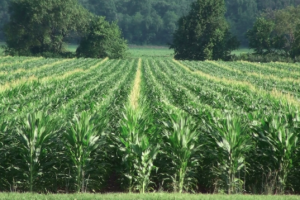
Farm Net Seeks to Plant Seeds of Big Data

Farmers used to swap stories and discuss the weather at the feed store or the grain elevator. Now they are just as likely to be gathered around a computer screen analyzing data on crop yields across the country.
That’s at least one of the goals of the Farmers Business Network launched last fall to break down agricultural data on millions of acres of U.S. farmland while providing “real-world” results on the performance of different seed and crop strains as well as fertilizers “from fields like yours.”
The network, which earlier this month announced a $15 million investment round led by Google Ventures, says its team of rural data scientists from around the Midwest also have plenty of dirt under their fingernails. The goal of the network is to tap into this hard-won collective knowledge while making agricultural data more accessible. This, proponents and investors claim, should translate it into larger crop yields produced at lower cost.
Farmers Business Network has so far raised $28 million in venture capital. Joining Google in the most recent funding round were Kleiner, Perkins Caulfield & Byers along with DBL Investors.
Based in the agricultural hub of Davenport, Iowa, and launched last November, the network claims to have aggregated data on the performance of 7 million acres of farmland spanning 17 states. The database also includes a database of more than 500 seed varieties and a growing list of crops such as alfalfa, corn, wheat and soybeans.
Along with vagaries of weather, farmers are generally forced to rely on university farm extension test plots or seed salesmen in deciding which seed types to plant. Hence, the platform’s “whole farm analysis” feature attempts to pinpoint key factors like cumulative precipitation and planting temperature that affect individual crop yields. The service also includes a “seed finder” function designed to sift through the acreage data to discover the optimum seed for specific farms.
The push for big data in agriculture comes as the traditional family farm, once the bedrock of American society, has given way to huge corporate farms that often prove more economically efficient but have all but eliminated a way of life. The promoters of the Farmers Business Network seem to be looking for a middle way in which the nation’s remaining farmers can collaborate to efficiently produce what the world needs most: food.
One way big data could play a larger role in agriculture is by identifying more drought-resistant seed strains as farmers—especially in the drought-stricken agricultural regions of California—try to cope with extreme weather conditions. (Meanwhile, others areas of the country such as Texas, Oklahoma and Colorado are currently enduring historic flooding.)
It’s unclear at this point whether the $500-per-year flat rate (“no acres fees, period”) charged to join the Farmers Business Network will result in a bumper crops. There is no sure thing when it comes to farming. What the big agricultural data service could do, at least, is help narrow the odds against the next catastrophic crop failure.
Recent items:
Dairy Industry Asks: Got Big Data?
Climate Researchers Crunch Big Data on Weather Extremes






























